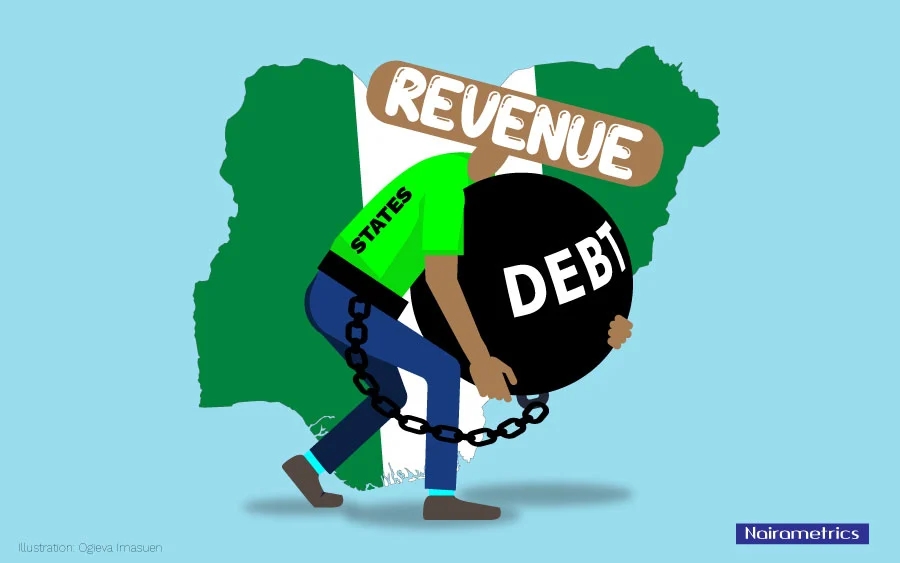The Federal Government ended 2022 with a fiscal deficit of N7.5 trillion or 129% of actual revenue collected.
The government had budgeted a revenue of N9 trillion and a deficit of N5.2 trillion.
This is according to data extracted from the 2022 budget implementation report released by the Budget office.
The level of fiscal deficit brings to the fore the fiscal crisis challenging the country as it continues to struggle with its ability to balance its budget.
What the data is saying
According to data from the budget office, the federal government received a total revenue of N5.8 trillion down from N6.7 trillion received in the same period in 2021.
- However, it spent N5 trillion on recurrent non-debt expenditures with personal costs gulping N3.49 trillion of the total.
- Debt service cost the government a whopping N5.65 trillion during the year representing a staggering 97.4% of budgeted revenue. This compares to N4.2 trillion incurred in 2021 or 62.8% of budgeted revenue.
- Included in the debt service was N1.8 trillion in ways and means while N2.5 trillion and N1.1 trillion were spent on domestic and foreign debt service respectively.
- In terms of capital expenditure, the federal government was only able to spend N1.89 trillion lower than the N1.9 trillion it incurred in 2021 and about 50% lower than its target of N3.6 trillion.
The budget office also confirmed that overall, the N7,523.71 billion deficits recorded in 2022 represent a budget-deficit to GDP ratio of 3.77% which is above the target rate of 3.0% as stipulated in the FRA 2007. The deficit was financed in part through ₦510.21 billion in foreign borrowing and ₦3,654.12 billion in domestic borrowing.
What this means
The situation outlined in the report indicates a serious fiscal crisis for the Nigerian federal government, and there are several critical points to note.
Larger-than-Expected Deficit: The fiscal deficit of N7.5 trillion exceeds the government’s budgeted deficit of N5.2 trillion by a substantial margin.
- This also represents 129% of the actual revenue collected, which is a worrying ratio.
- The high deficit shows that the government’s spending far outpaces its revenue, which could have dire implications for economic stability and growth.
Decreased Revenue: The government’s actual revenue was N5.8 trillion, which is not only less than the budgeted N9 trillion but also less than the N6.7 trillion collected in 2021.
- A declining revenue stream compounds the fiscal difficulties, making it increasingly challenging to meet financial obligations.
- The report also buttressed this view stating that the government will continue to fast-track efforts towards accelerating economic growth and improving revenue generation which are vital to the successful implementation of the annual Budgets.
High Expenditure on Recurrent Costs and Debt Service– The government spent a whopping N5 trillion on recurrent non-debt expenditure, with personal costs taking up N3.49 trillion.
- Moreover, the debt service cost stood at N5.65 trillion, which is an alarming 97.4% of the budgeted revenue.
- This leaves very little fiscal space for other essential services and development projects.
- It’s especially concerning when compared to the N4.2 trillion or 62.8% of budgeted revenue in 2021.
- According to the budget office, “efforts to restrain the growth in recurrent expenditure and particularly personnel expenditure in 2024 and beyond is critical even as effective implementation of measures to address the security challenges continue to be a government priority. “
Inadequate Capital Expenditure: While recurrent expenses and debt servicing take up most of the budget, the capital expenditure was notably low.
- The government could only spend N1.89 trillion, which is 50% lower than the targeted N3.6 trillion.
- Low capital expenditure hampers infrastructural development and long-term economic growth.
Budget-Deficit-to-GDP Ratio: The budget-deficit-to-GDP ratio of 3.77% is higher than the 3.0% target stipulated in the Fiscal Responsibility Act (FRA) of 2007.
- This suggests that the country is living beyond its means relative to the size of its economy.
- The DMO also cited the need to address the issue of non-essential fiscal deductions to free up resources for budget implementation at all tiers of government.
Financing the Deficit: The deficit was financed partly through foreign borrowing of ₦510.21 billion and domestic borrowing of ₦3,654.12 billion.
- While borrowing is a standard practice to cover fiscal deficits, excessive reliance on it could be unsustainable in the long term, as it only increases future debt service obligations.
How this affects the exchange rate
Large fiscal deficits can contribute to a currency crisis by increasing the money supply, thereby causing inflation and devaluing the domestic currency.
- This can lead to higher interest rates as the government borrows more to cover the deficit, further eroding investor confidence and triggering capital flight.
- The depletion of foreign reserves, used to stabilize the currency, exacerbates the situation.
- The cycle often culminates in a balance of payments crisis, making imports more expensive and widening trade deficits, which puts additional downward pressure on the currency. In extreme cases, the country may become the target of speculative attacks, rapidly draining foreign reserves and forcing a steep devaluation of the currency.
- This combination of factors creates a self-perpetuating loop of economic instability, making it difficult for a country to stabilize its currency.
Thus, it is no surprise that Nigeria continues to experience a currency crisis as the expansive money supply pumped into the economy by the government did not lead to economic growth, rather it exacerbated the level of inflation in the country.
